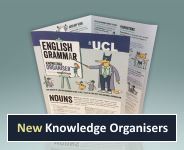Topic: Composition
These resources relate to writing skills, including the composition of essays, persuasive pieces, and other types of texts.
Englicious contains many resources for English language in schools, but the vast majority of them require you to register and log in first. For more information, see What is Englicious?

